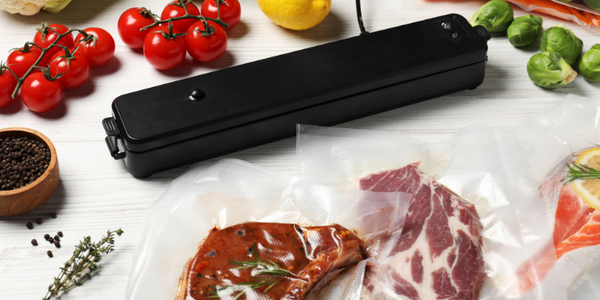Posted on December 11 2023

Couples often argue about their willingness to be tidy and put things where they belong. They may have disagreements over how one person leaves dirty clothes around, for example, or they may find it hard to decide where to put new mail or magazines so that they are accessible without adding to the clutter. It isn't unusual, either, to argue over how to store certain foods best -- do you put them in the refrigerator, or on a shelf in the kitchen? People tend to have strong opinions about what works best.
What kind of actual benefit do you get with each type of food storage plan, and what should you prefer for different foods? The following tips should help.
Peanut butter
Your decision to store peanut butter in the pantry or in the refrigerator makes no difference to any salmonella that may have found its way into it at the factory. Salmonella tends to naturally find peanut butter a disagreeable environment and stays dormant in it until someone consumes the peanut butter. However, according to FoodSafety.gov, refrigeration has a number of benefits. It can help keep peanut butter from separating and put off the arrival of rancidity by several months.
Mustard
Mustard doesn't easily spoil, but it can lose some of its flavor when stored at room temperature for months. Refrigeration, however, can help mustard remain flavorful for longer. If you tend to buy mustard in large jars, putting them in the refrigerator can help maintain its distinctive flavor, especially Dijon mustard and other flavored mustard products.
Ketchup and hot sauce
When you walk into a fast-food restaurant and see a bottle of ketchup sitting on the table, you may wonder if it makes any sense to refrigerate ketchup yourself at home. The natural acidity of ketchup makes it shelf-stable. However, it can retain its taste for longer when it is refrigerated. Bottles of ketchup on restaurant tables are often used up in mere hours and therefore don't need refrigeration; your home bottle, however, could last weeks.
Molasses
A food that is high in water activity contains plenty of free water molecules that microorganisms are able to use to multiply; a low water activity food, on the other hand, may have plenty of water molecules, but they could all be bound up with other kinds of molecules, and be inaccessible to bacteria. Molasses, being as rich in sugar as it is, is low in water activity. All the water is bound up to the sugar, leaving little for bacteria to use. Molasses can last six months out at room temperature and lose none of its flavor. Maple syrup, on the other hand, does require refrigeration.
Manufactured foods tend to have a reasonable shelf life with or without refrigeration. However, if you can put up with using your condiments at cold temperatures, refrigeration could keep them tastier for longer. If you don't want cold peanut butter or ketchup, you could even take a week's worth out of the refrigerator at a time and put it in a small container to leave out.





0 comments